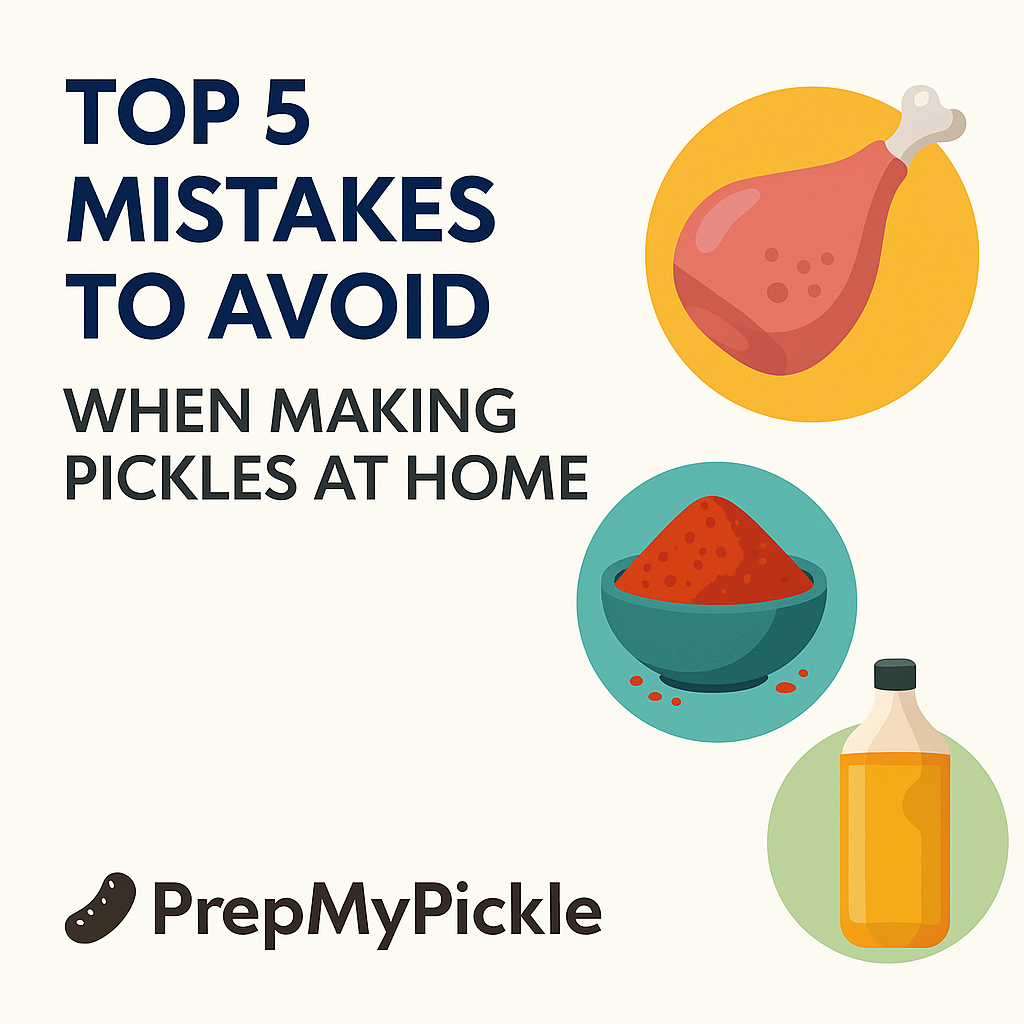
Making pickles at home is both fun and rewarding—but it’s also a delicate art that requires care and attention. One wrong step can lead to spoilage, poor flavor, or a pickle that just doesn’t taste right. From choosing the right ingredients to mastering the fermentation or cooking process, every detail matters.
Pickle-making isn’t just a recipe; it’s a craft passed down through generations. But even the most experienced home cooks can fall into small, easily avoidable traps—like using the wrong oil, under-drying ingredients, or overdoing the salt. If you’re serious about creating pickles that are not only delicious but also safe and shelf-stable, it’s crucial to understand what not to do.
Whether you’re a seasoned pickler or just getting started on your first batch, this blog will walk you through the Top 5 Mistakes to Avoid—so you can make pickles that stay fresh longer and taste just like Grandma’s (or maybe better 😉).
🧂 1. Skipping Salt Measurement
Salt isn’t just about taste—it acts as a preservative. Too little salt can result in spoilage, and too much can overpower your flavors. Always measure your salt based on the quantity of ingredients, especially the moisture-heavy ones like vegetables or meat.
🔸 Tip: Use non-iodized rock salt or sea salt for better fermentation and flavor.
💧 2. Not Drying Ingredients Properly
Moisture is the enemy of good pickle-making. Water left on the surface of your vegetables, meat, or utensils can promote fungal growth or bacterial spoilage.
🔸 Tip: Sun-dry or air-dry ingredients thoroughly after washing, especially green chilies, mangoes, and chicken/mutton pieces.
🫙 3. Using the Wrong Type of Oil
The choice of oil can make or break your pickle. Some oils don’t preserve well and can go rancid quickly. Others may not suit the flavor profile of certain pickles. Want to make the most of your oil selection? ” Learn how to choose between cold-pressed and refined oil.
🔸 Tip: Stick to traditional oils like groundnut or cold-pressed mustard oil. Avoid refined oils unless you’re sure of their shelf stability. Learn how to identify
🔥 4. Inadequate Heating of Spices or Oil
Raw spices and unheated oil can result in pickles that taste flat or spoil faster. Heating brings out essential oils in spices and also sterilizes the oil, making the pickle more flavorful and shelf-stable.
🔸 Tip: Always temper your spices and heat your oil before mixing them into the pickle.
🧴 5. Using Improper Containers
Storing pickles in plastic or low-quality jars can lead to contamination or leaching. The container you use matters as much as your ingredients!
🔸 Tip: Use sterilized glass jars or traditional ceramic jars (bharanis). Avoid plastic, especially for acidic or spicy pickles.
💡 Bonus Tip: Want to Skip the Mistakes?
At PrepMyPickle, we let you enjoy all the goodness of homemade pickles without the hassle. You bring the ingredients—we do the prep with our time-tested process, hygienic methods, and traditional expertise.
